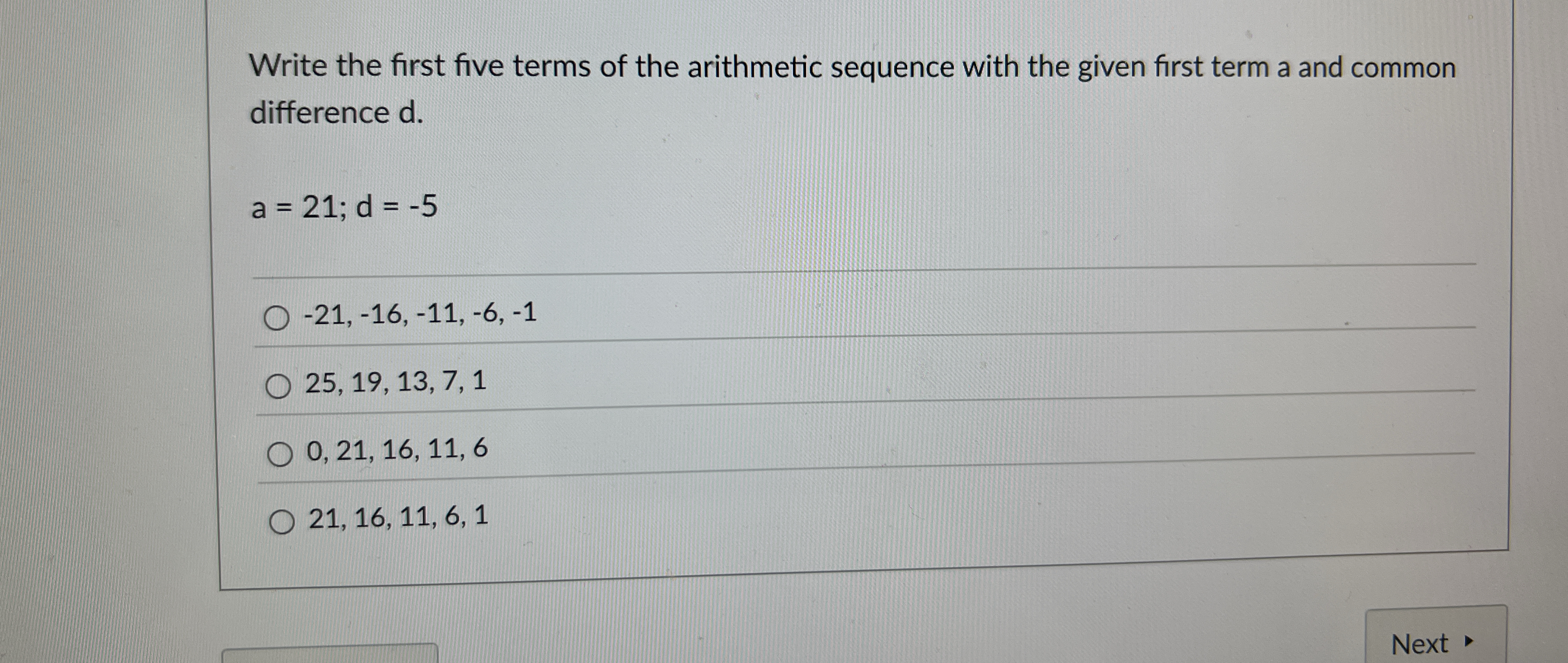Write the first five terms of the arithmetic sequence with the given first term a and common difference d. a = 21; d = -5

Understand the Problem
The question is asking to calculate the first five terms of an arithmetic sequence given the first term (a = 21) and the common difference (d = -5). The task involves determining the sequence generated by repeatedly adding the common difference to the first term.
Answer
The first five terms of the sequence are $21, 16, 11, 6, 1$.
Answer for screen readers
The first five terms of the arithmetic sequence are $21, 16, 11, 6, 1$.
Steps to Solve
-
Identify the first term and common difference The first term $a = 21$ and the common difference $d = -5$.
-
Calculate the second term The second term can be found by adding the common difference to the first term: $$ T_2 = a + d = 21 - 5 = 16 $$
-
Calculate the third term The third term is calculated by adding the common difference again: $$ T_3 = T_2 + d = 16 - 5 = 11 $$
-
Calculate the fourth term Similarly, the fourth term is: $$ T_4 = T_3 + d = 11 - 5 = 6 $$
-
Calculate the fifth term Finally, the fifth term is: $$ T_5 = T_4 + d = 6 - 5 = 1 $$
-
List the first five terms The first five terms of the sequence are: $$ 21, 16, 11, 6, 1 $$
The first five terms of the arithmetic sequence are $21, 16, 11, 6, 1$.
More Information
Arithmetic sequences are formed by starting with a given number and adding a consistent value (the common difference) repeatedly. In this case, starting at 21 and subtracting 5 produces the consecutive terms.
Tips
- Forgetting to apply the common difference correctly. Make sure to subtract the common difference for every term after the first.
- Confusing the first term with the common difference. Always remember that the first term is where the sequence starts.
AI-generated content may contain errors. Please verify critical information